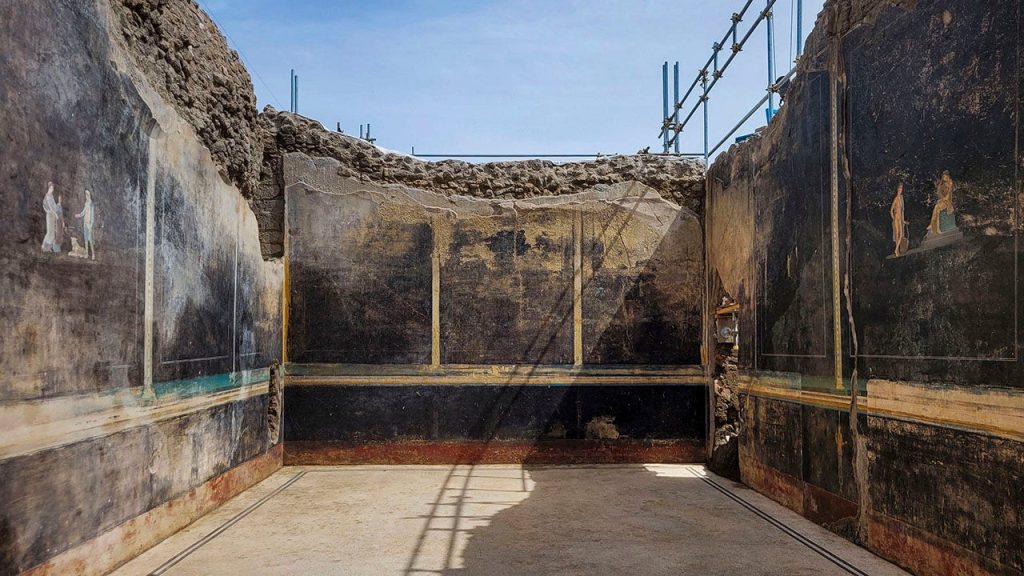Archaeologists excavating Pompeii recently made a surprising discovery: a banquet hall adorned with paintings inspired by the Trojan War. The hall was uncovered as part of a project aimed to prevent further deterioration of the ruins of the doomed city. Pompeii was once a bustling city near Naples until it was destroyed by the eruption of Mount Vesuvius in A.D. 79, killing thousands yet leaving it remarkably preserved under a layer of volcanic ash for centuries. The city was rediscovered in the 18th century and has since become a popular tourist destination and archaeological dig site.
Designated a UNESCO World Heritage Site in 1997, the ruins of Pompeii provide a unique look into an ancient Roman city, offering a complete picture of its civilization. The newly discovered banquet hall in Pompeii is believed to have been used for refined entertaining. The black walls of the hall were designed to conceal the smoke from oil lamps, while the paintings, featuring depictions of Helen of Troy, Apollo, and Cassandra, likely served as conversation starters for guests. Measuring about 45 feet long and 18 feet wide, the hall leads out to a courtyard near a staircase.
Previous excavations in Pompeii have focused on the elaborately frescoed villas of the city’s upper-class residents, but recent efforts have shifted towards uncovering areas where the middle class and servants lived. This shift in focus has led to the discovery of the banquet hall, suggesting a more comprehensive understanding of daily life in Pompeii. The excavation of the hall was part of a larger initiative to make the archaeological park more sustainable in the face of climate change.
The paintings found in the banquet hall, depicting scenes from the Trojan War, served both as a form of entertainment and as conversation starters for guests. The hall’s strategic layout, with black walls to hide lamp smoke and proximity to a courtyard, suggests that it was used for hosting refined gatherings. The discovery of the banquet hall highlights the ongoing importance of archaeological excavations in Pompeii, shedding new light on the social and cultural practices of its inhabitants. With ongoing excavations and efforts to preserve the ruins, the historic site continues to reveal fascinating insights into ancient Roman civilization.
Overall, the discovery of the banquet hall in Pompeii adds to the rich tapestry of archaeological findings in the ancient city, offering a glimpse into the refined entertaining practices of its inhabitants. The paintings adorning the walls provide a window into the cultural and artistic sensibilities of the time, showcasing scenes from the Trojan War and other mythological figures. As excavations continue in Pompeii, researchers hope to further unravel the mysteries of this ancient civilization, shedding light on the daily lives of both the elite and the working class residents. The ongoing efforts to preserve and study the ruins of Pompeii underscore the enduring legacy of this once vibrant city and its importance in understanding the ancient world.


